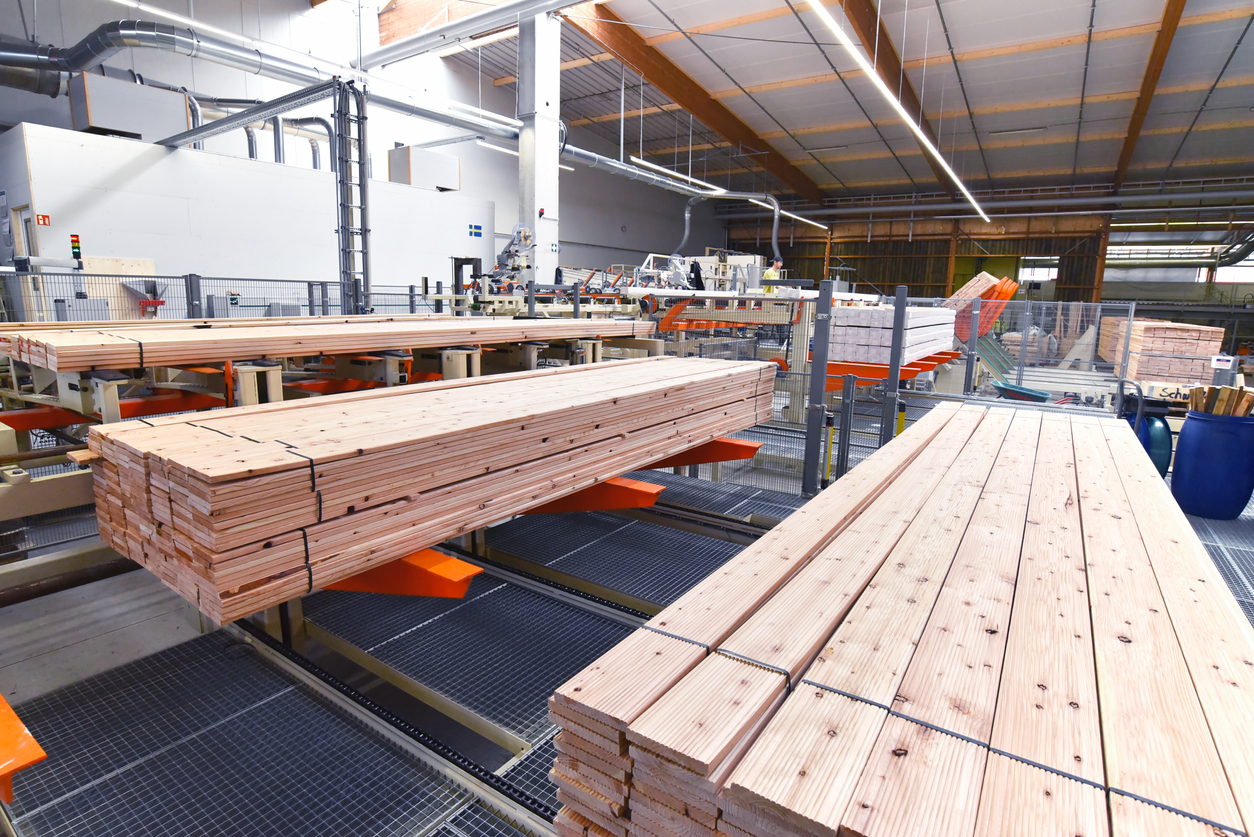From Forest to Finish: The Process of Sawmilling and Planing Wood in Nigeria
From Forest to Finish: The Process of Sawmilling and Planing Wood in Nigeria
Step into the fascinating world of sawmilling and planing wood in Nigeria, where ancient traditions meet modern technology to create stunning pieces of craftsmanship. Join us on a journey from forest to finish as we explore the intricate process behind transforming raw timber into beautiful, functional works of art. Dive deep into the heart of Nigeria’s woodworking industry and discover the passion and skill that goes into every piece created. Get ready to be amazed by the artistry and dedication that bring these natural wonders to life.
Introduction to the sawmilling and planing process in Nigeria
Introduction to the Sawmilling and Planing Process in Nigeria
Sawmilling and planing are essential processes in the production of wood products, and they play a crucial role in Nigeria’s booming forestry industry. These processes involve cutting, shaping, and smoothing rough lumber into usable wood products such as boards, planks, beams, and other building materials.
In Nigeria, sawmilling has been a traditional practice for centuries, with many small-scale mills scattered across different regions of the country. However, with the increasing demand for wood products in both local and international markets, modern sawmills equipped with advanced machinery have emerged to meet this growing need.
The first step in sawmilling is selecting a suitable tree for harvesting. In Nigeria, most trees used for sawmilling come from commercial plantations or sustainably managed natural forests. Once selected, the tree is cut down and transported to the mill for processing.
At the mill, logs are debarked using specialized machines or manually by workers using hand tools. The debarking process removes the outer layer of bark from the log to prepare it for cutting. The logs are then placed onto a carriage that carries them through a large circular bandsaw or frame saws that slice them into desired sizes.
Next is the planing process which involves running rough-sawn boards through a planer machine that smoothens their surfaces and creates uniform thickness throughout. This step is crucial as it not only improves aesthetics but also makes it easier to work with the wood during construction.
After being cut and planed, some lumber may go through additional treatments such as drying or pressure treatment to enhance its durability before being sold to customers. Drying helps reduce moisture content in the wood which prevents warping or bending while pressure treatment uses chemicals to protect against insects and rotting.
The entire process usually takes place within one day at smaller mills but can take longer at larger facilities that handle higher quantities of lumber. The finished products are then graded and sorted based on quality, size, and intended use.
In recent years, Nigeria’s sawmilling industry has undergone significant changes with the introduction of modern machinery and technology. This has not only increased efficiency but also improved the quality of wood products produced, making them competitive in both local and international markets.
Sawmilling and planing play a vital role in transforming raw timber into usable wood products. With Nigeria’s vast forest resources and advancements in technology, the country is well-positioned to continue meeting the growing demand for sustainable wood products while supporting its economy.
The history of sawmilling and planing in Nigeria
The history of sawmilling and planing in Nigeria dates back centuries, with evidence of local communities using traditional methods to process timber for various purposes. However, the modernization and industrialization of the country’s forestry sector began in the late 19th century when European colonists introduced mechanized sawmills.
During this period, Nigeria was one of the major suppliers of timber to European countries. The abundance of high-quality timber species such as teak, mahogany, and iroko, coupled with the availability of cheap labor, made it a lucrative industry for both locals and foreign investors.
Sawmilling in Nigeria initially involved cutting trees into logs using hand tools such as axes and saws. The logs were then transported to nearby rivers or streams where they were floated downstream to sawmills located near the coast for further processing.
In the early 20th century, steam-powered circular saws were introduced, significantly increasing production capacity and efficiency. These machines allowed for faster cutting speeds and increased accuracy in sizing lumber. As a result, Nigeria became a major exporter of high-quality timber products to Europe and other parts of the world.
With an increase in demand for processed wood products locally and globally, new technologies continued to be adopted in Nigerian sawmills. In the 1950s, diesel-powered band mills replaced steam-powered circular saws due to their ability to cut larger logs efficiently.
As Nigeria gained independence from British rule in 1960, there was a shift towards promoting domestic industries through import substitution policies. This led to more investment in the forestry sector by local entrepreneurs who set up small-scale sawmilling operations across the country.
However, despite these advancements in technology and increased local ownership of mills, concerns about unsustainable logging practices emerged as deforestation rates rose significantly. This led to stricter regulations on forest management imposed by government agencies like the Forestry Research Institute (FRIN) and National Environmental Standards and Regulations Enforcement Agency (NESREA).
Today, modern sawmills in Nigeria utilize computer-controlled machinery for precision cutting and planing of wood. This technology has not only increased production efficiency but also reduced the impact on the environment through sustainable logging practices.
The history of sawmilling and planing in Nigeria is a testament to the country’s rich forestry resources and its continuous evolution towards more efficient and sustainable practices. As the demand for timber products continues to rise globally, it is crucial that the industry maintains a balance between meeting this demand while preserving Nigeria’s valuable forests for future generations.
The role of Wigmore Trading in the industry
The role of Wigmore Trading in the industry of sawmilling and planing wood in Nigeria is crucial. As one of the leading suppliers of quality timber, Wigmore Trading plays a significant role in ensuring that the process from forest to finish runs smoothly and efficiently.
With over 20 years of experience in the timber industry, Wigmore Trading has established itself as a trusted source for all types of wood products. They have built strong relationships with reputable sawmills and planing mills across Nigeria, which allows them to consistently provide high-quality timber to their customers.
One of the key contributions of Wigmore Trading is their commitment to sustainable sourcing practices. They understand the importance of preserving natural resources and work closely with local communities and government agencies to ensure responsible logging practices. This not only helps protect the environment but also promotes long-term sustainability for both the industry and local communities.
Wigmore Trading also plays a vital role in meeting the growing demand for locally sourced wood products in Nigeria. By partnering with small-scale sawmills, they are able to support local businesses while providing a steady supply of timber for various construction projects.
In addition to sourcing and supplying quality timber, Wigmore Trading also offers value-added services such as kiln drying and custom cutting according to specific project needs. This reduces wastage and ensures that customers receive the exact dimensions they require for their projects.
Moreover, Wigmore Trading has invested heavily in modern machinery and technology, which enables them to produce high-quality finished products such as flooring, decking, paneling, moldings, and more. This adds value to their offerings and provides customers with a one-stop-shop solution for all their wood needs.
Furthermore, Wigmore Trading values customer satisfaction above all else. Their team is highly knowledgeable about different types of wood species available in Nigeria and can provide guidance on choosing the right type based on project requirements. They also offer prompt delivery services nationwide so that customers can get their timber on time and within budget.
The role of Wigmore Trading in the sawmilling and planing industry in Nigeria cannot be overstated. From sustainable sourcing practices to providing a diverse range of high-quality wood products, they are an essential player in ensuring a smooth and efficient process from forest to finish. Their commitment to excellence and customer satisfaction makes them a trusted partner for both businesses and individuals seeking quality timber products.
Step-by-step breakdown of the sawmilling and planing process
The process of sawmilling and planing wood in Nigeria may seem like a straightforward task, but it actually involves several steps that require precision and expertise. In this section, we will take a closer look at the step-by-step breakdown of the sawmilling and planing process.
Firstly, before any cutting can begin, the logs are carefully selected from sustainably managed forests. This is an important step as it ensures that only high-quality and healthy trees are used for the production of lumber. Once selected, the logs are transported to the sawmill where they undergo debarking. This involves removing the outer layer of bark from the logs using specialized machinery.
Next, the debarked logs are fed into a large circular saw known as a head rig. The head rig cuts through the log lengthwise, creating slabs or boards of timber. These initial cuts are rough and uneven, so they need to be trimmed down further to achieve precise dimensions.
The next step in the process is edging. This involves trimming off any irregular edges from each slab or board to create straight and even sides. After edging, the boards go through another round of cutting on a resaw machine to achieve their desired thickness.
Once cut down to size, the boards go through a drying process where they are stacked and left in kilns for several days until they reach their optimal moisture content. Proper drying is crucial as it prevents warping and cracking in finished products.
After drying, it’s time for planing – one of the most critical steps in creating smooth and even surfaces on lumber. The boards are run through large machines equipped with sharp blades that shave off thin layers from both sides of each board until they reach their desired thickness.
The final stage in this process is grading and sorting the lumber based on its quality and intended use. High-grade lumber is typically used for furniture making or construction purposes while lower-grade pieces may be used for packaging or other industrial applications.
The sawmilling and planing process in Nigeria involves several steps, from selecting the right logs to grading and sorting the finished lumber. Each step requires specialized equipment and skilled workers to ensure high-quality products. By understanding this process, we can appreciate the efforts put into producing beautiful and sustainable wood products that are essential to our daily lives.
Challenges faced by sawmillers and planners in Nigeria
Nigeria is a country rich in natural resources, with vast forests that cover approximately 15% of its land area. These forests have been a major source of timber for the sawmilling and planning industry in Nigeria. However, despite the abundance of raw materials, the sawmilling and planning process in Nigeria faces several challenges.
One of the main challenges faced by sawmillers and planners in Nigeria is the lack of modern equipment and technology. Most sawmills in Nigeria still use traditional methods such as hand tools and simple machines, which are not only time-consuming but also produce low-quality products. This results in a lower demand for Nigerian wood products on the international market, leading to reduced profitability for sawmillers and planners.
Moreover, due to the lack of modern equipment, there is also a high rate of wastage during the sawmilling process. Inefficient cutting techniques result in a significant amount of usable wood being discarded as waste or used for fuelwood instead of being processed into higher value-added products. This leads to reduced profits for both sawmillers and planners.
Another challenge faced by these industries is inadequate infrastructure support. The transportation system in Nigeria is often unreliable, making it difficult to transport logs from forest areas to sawmills efficiently. Furthermore, many roads leading to remote forest areas are not well-maintained, making it challenging to access raw materials needed for production. These logistical issues add additional costs to the overall production process, affecting profit margins.
Additionally, there is also a lack of skilled labor in Nigeria’s sawmilling industry. Many workers lack training on proper milling techniques and safety measures while operating heavy machinery. This poses risks not only to their own safety but also affects productivity levels at these facilities.
Furthermore, environmental regulations and illegal logging practices pose significant challenges for both sawmillers and planners in Nigeria. While strict regulations aim to protect the country’s natural resources from overexploitation, they also increase the cost of production for these industries. On the other hand, illegal logging continues to be a prevalent issue in Nigeria, leading to a loss of revenue for the government and posing a threat to sustainable forestry practices.
Although sawmilling and planning play an essential role in Nigeria’s economy, there are various challenges that need to be addressed to improve efficiency and profitability in these industries. Modernizing equipment and technology, improving infrastructure support, investing in skilled labor training programs, and stricter enforcement of environmental regulations can help overcome these challenges and strengthen the wood processing sector in Nigeria.
Sustainable practices and efforts to preserve forests in Nigeria
Future of sawmilling and planing in Nigeria
The sawmilling and planing industry in Nigeria plays a significant role in the country’s economy, providing employment opportunities and contributing to the nation’s GDP. However, with the rapidly growing population and increasing demand for wood products, it is essential to evaluate the future of this sector and ensure sustainable practices are implemented.
One of the biggest challenges facing sawmilling and planing in Nigeria is deforestation. According to a report by the Food and Agriculture Organization (FAO), between 2000-2015, Nigeria lost an average of 409,700 hectares of forest per year. This loss not only affects the environment but also poses a threat to the future supply of wood for sawmilling and planing operations. To combat this issue, there have been efforts by both government agencies and private organizations to promote sustainable forestry practices such as reforestation programs and responsible logging techniques.
In addition to environmental concerns, another factor that could impact the future of sawmilling and planing in Nigeria is technological advancements. With rapid developments in technology globally, it is crucial for Nigerian sawmills to keep up with modern equipment and methods to remain competitive in both local and international markets. The use of advanced machinery can improve production efficiency while reducing labor costs.
Another aspect that will shape the future of sawmilling and planing in Nigeria is market demand. As urbanization continues at a fast pace, there will be an increasing need for building materials such as wood products. The construction industry accounts for a significant portion of wood consumption globally, making it critical for sawmillers to keep up with market trends and demands.
Moreover
Conclusion: Importance of supporting local industries like Wigmore
Conclusion: Importance of supporting local industries like Wigmore
The process of sawmilling and planing wood in Nigeria is a crucial aspect of the country’s economy. It not only provides employment opportunities for thousands of people but also contributes significantly to the nation’s GDP. One particular company that stands out in this industry is Wigmore, which has been operating for over four decades and has established itself as a leading player in the market.
Supporting local industries like Wigmore is essential for various reasons. Firstly, it helps boost the country’s economy by reducing reliance on imported goods and promoting self-sufficiency. When we support local businesses, we are essentially investing in our own community and contributing to its growth and development.
Moreover, supporting local industries also creates job opportunities for the local population. The process of sawmilling and planing wood requires skilled laborers who are trained to handle specialized machinery and equipment. By supporting companies like Wigmore, we are not only providing employment to individuals but also helping develop their skills and expertise.
Another significant benefit of supporting local industries is that it promotes sustainable practices. As discussed earlier, Wigmore follows strict guidelines set by regulatory bodies such as FSC to ensure responsible sourcing of timber from well-managed forests. By choosing locally sourced products, we can reduce our carbon footprint and lessen our impact on the environment.
Furthermore, when we support local industries like Wigmore, we are also indirectly supporting small-scale farmers who provide raw materials such as logs to these companies. This creates a ripple effect in the economy as more people are employed or have a source of income through these businesses.
By choosing products from companies like Wigmore over imported ones, we can be assured of high-quality goods made with precision and care. Local businesses often prioritize quality over quantity because they have a reputation to maintain within their community.
It is evident that supporting local industries like Wigmore is crucial for the growth and development of our economy. It not only creates job opportunities and promotes sustainable practices but also helps build a stronger community. So, the next time you are in need of wood products, consider supporting local businesses like Wigmore for a more significant impact on our society.








Comments are closed.